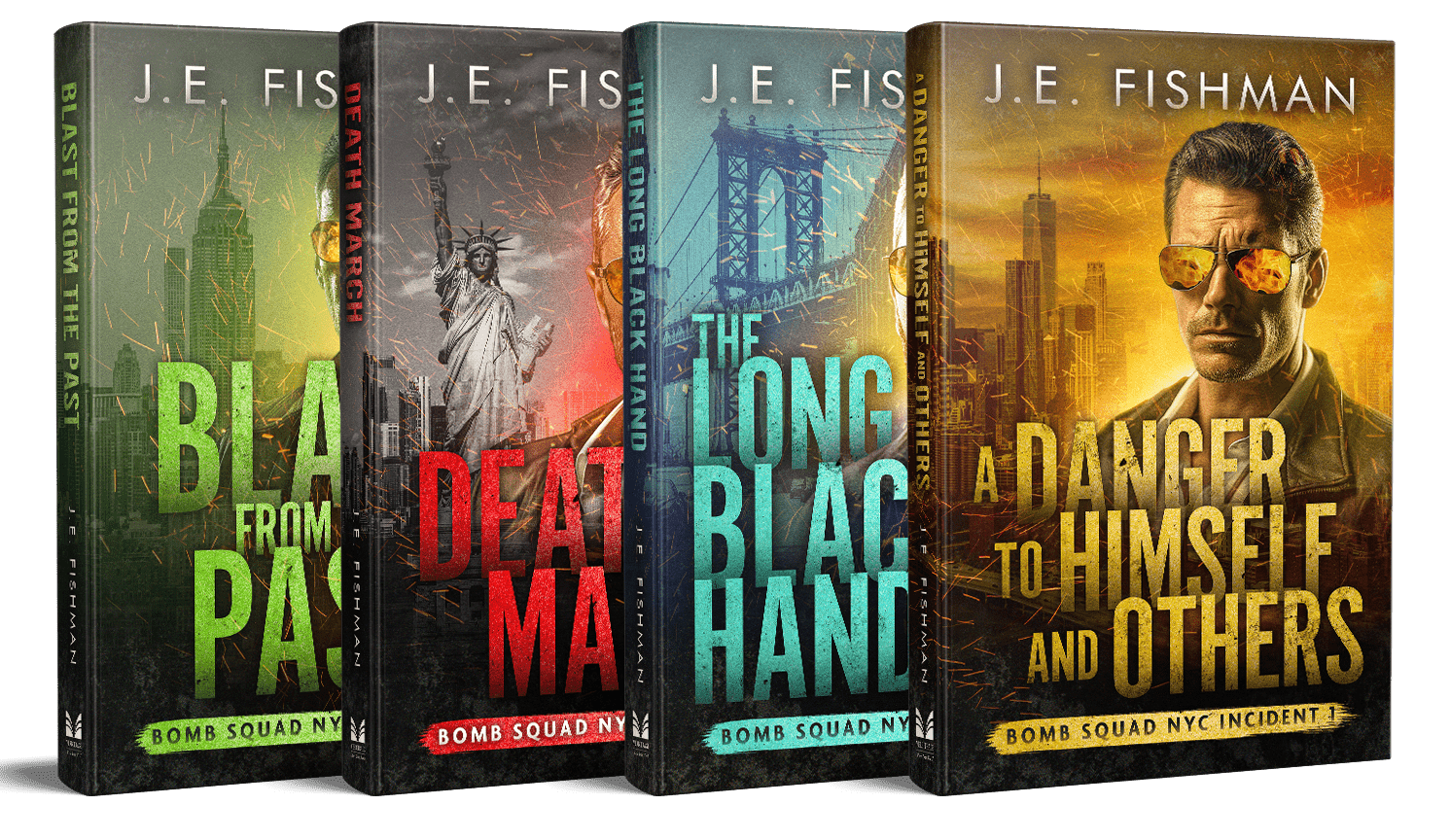
New!
We Once Were Giants
Penn’s MES program requires a final project called a capstone—something like a final thesis but with more flexibility. Since we live in an area dubbed The Mushroom Capital of the World (honest—see Cadaver Blues below), I originally planned to write a proposal on how to make mushroom operations fully circular, which is to say, zero waste. But as I learned more about coming tipping points with regard to climate change and environmental pollution, incremental improvements in one small industry started to feel banal. My capstone adviser had been urging me to do a creative capstone, so I went all-in with a novel—my ninth. I set the story in a ruined world and used a fantasy quest structure, but there’s no magic. It’s based on science, and the coming landscape may prove all too real if we don’t address what we’re doing to Earth’s biosphere. Although I meant the book as a warning, it comes to you in the form of page-turning entertainment!
For ten years we had a small apartment on Charles Street in New York’s West Village neighborhood. Two blocks up the street, we often walked by a steel garage door with a shield painted on it that read NYPD Bomb Squad. We knew this to be the rear of the Sixth Precinct, which has its front door on West Tenth Street, and I assumed it was some kind of outpost, perhaps a bomb squad covering downtown. We walked by for years and never saw it open.
Then, one warm summer night as we returned from dinner, everything changed. The door had been thrown wide open and several plain-clothes cops sat in chairs in front of their bomb-fighting vehicles, smoking cigars. My ten-year-old daughter charmed them, and they introduced us to a couple of their bomb detection dogs. (Bomb squad detectives hate when people call their dogs “bomb sniffers.”) When I asked whether this was one of the city’s bomb squad locations, they appeared quite amused and explained that this was where it all happened. I was standing in front of HQ.
It occurred to me that, to my knowledge, no one had ever written a fictional crime series on the guys who run towards a bomb when everyone else is running away. I decided to take a shot at writing such a series. Through a friend, I had the good fortune of swinging an introduction to the leading bomb technician in the FBI, who introduced me to Lieutenant Mark Torre, the NYPD Bomb Squad’s commander. I had a tour of the HQ, and Mark generously agreed to act as technical consultant on the series. He reviewed all four novels and the short nonfiction history that I published about the squad—an unprecedented commitment from an active commander of any group in the NYPD.
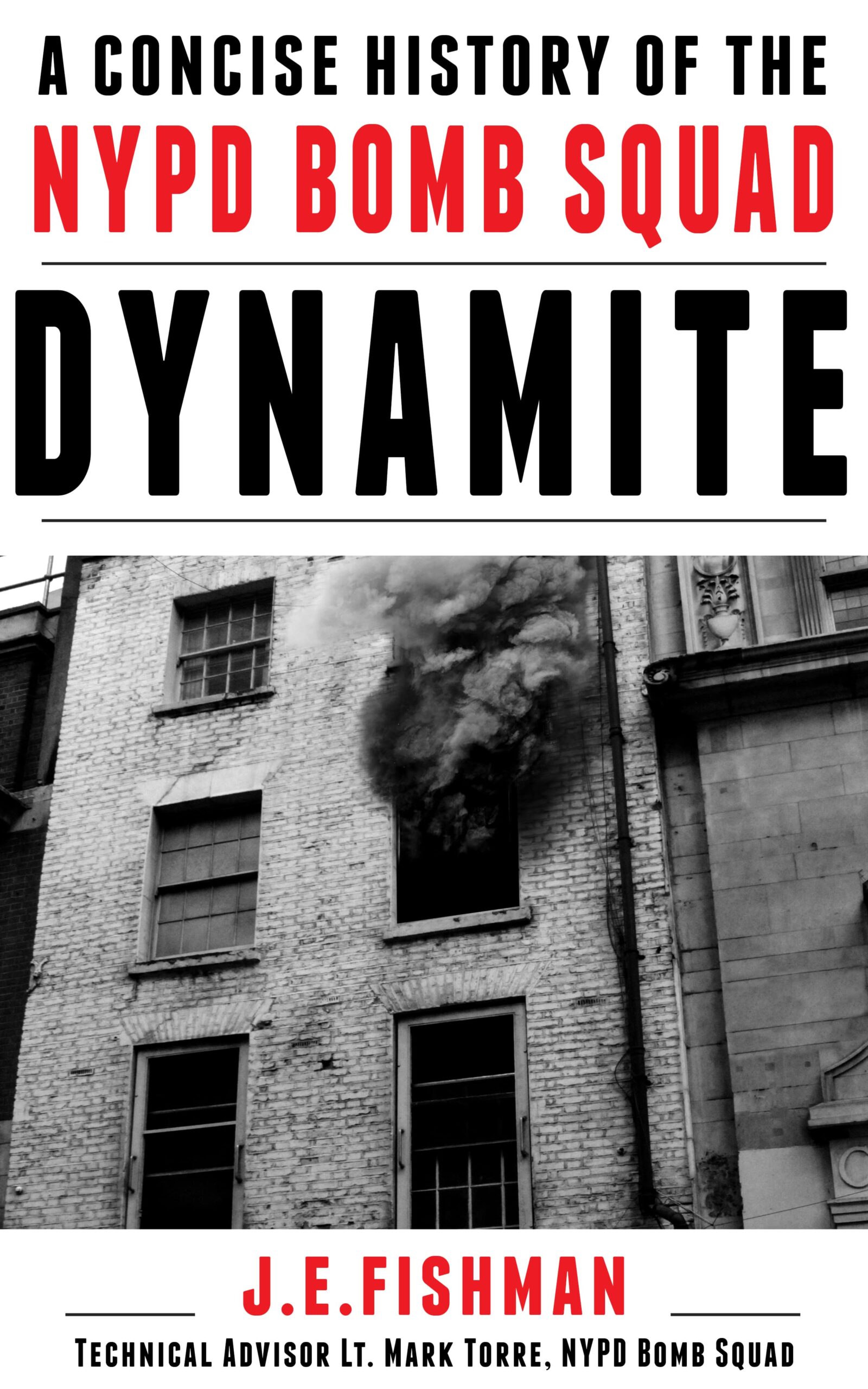
Dynamite!
As I was working on the Bomb Squad NYC novels, I became interested in the fascinating history of the NYPD Bomb Squad’s founding and its early years, which included rooting out German espionage against allied supply ships in the ports of New York City during World War I.
I soon learned from my technical consultant, Lieutenant Mark Torre, the commander of the squad, that no one had ever written a history of the NYPD Bomb Squad. I set out to rectify this oversight.
Beginning with a handful of photocopied papers from Mark, I researched and wrote this concise history (note that the page count gets padded out a bit with an excerpt from the first novel in the series), which goes all the way back to the squad’s earliest days fighting an organized crime extortion scheme mostly targeting Italian immigrants and includes dramatic bombings perpetrated by the FALN in the seventies.

The Dark Pool
They weren’t all bad people (some of them were), but they cultivated a certain detachment from the effect their actions had on the real non-finance world. That stuck in my craw, so I decided to write a book about the callousness and cynicism I sometimes witnessed. I chose a high school football player and his big-hearted coach as innocent victims of the financial machinations of rich men. How did I connect those people? Speaking metaphorically, someone presses a button on a terminal in Greenwich and gets another Ferrari. Out on the street? Blood runs.
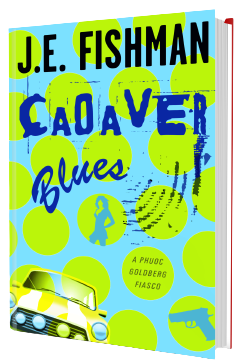
Cadaver Blues
I had the notion of writing a noir mystery and setting it among these unique elements. My mind conjured an accidental detective, a slight, somewhat angry Vietnamese fellow named Phuoc Goldberg who had been adopted as an infant by Jewish communists. I pitched the idea of online serialization to a literary website called The Nervous Breakdown, and Phu found more trouble than he could ever imagine—if he weren’t himself a product of my imagination.
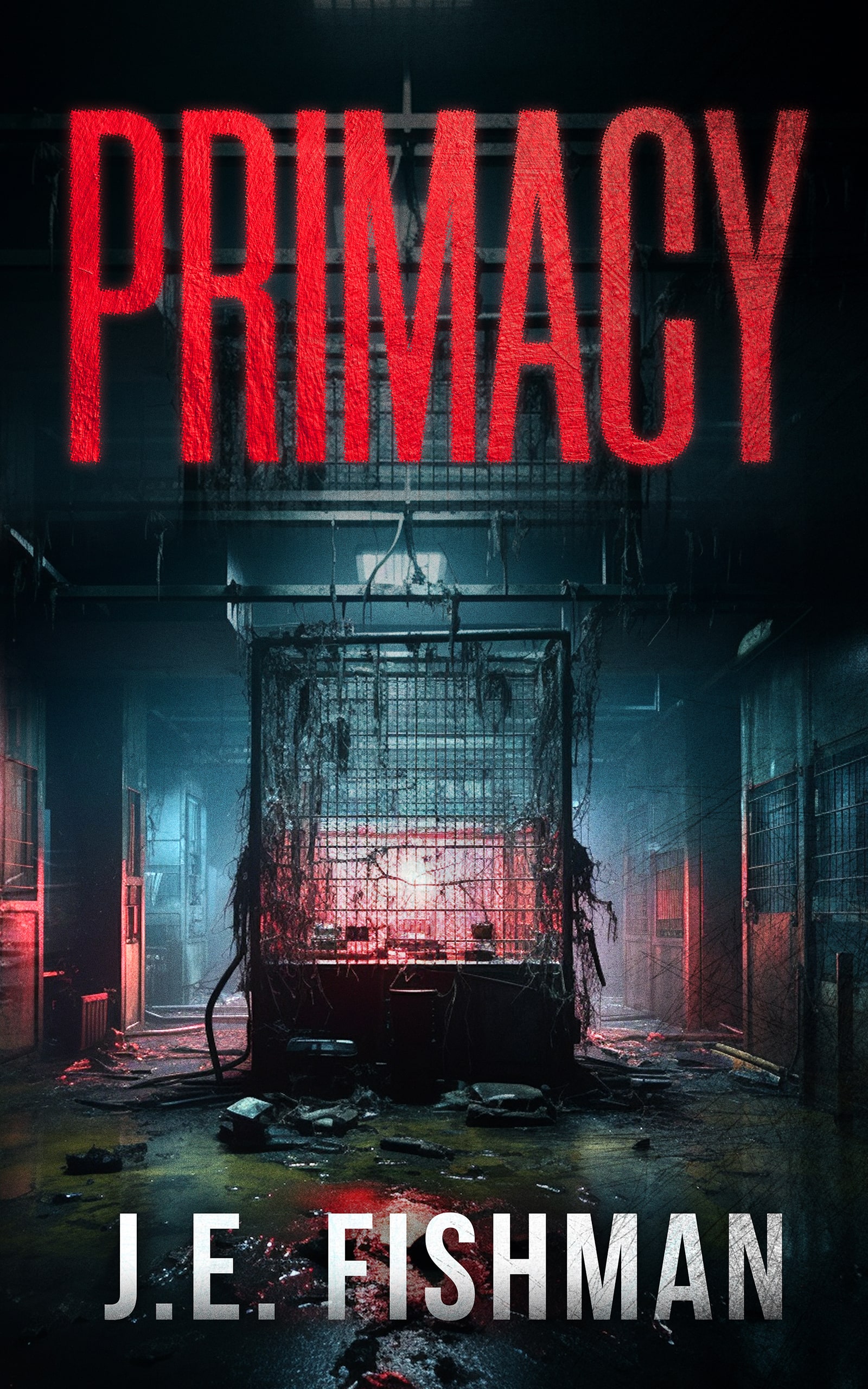
Primacy
How to broach this subject in the form of a thriller? While driving the car one day (people sometimes ask where I get my ideas, and I say, “Exit 11”), the idea of speech evolving in a chimp jumped into my head. What if the chimp were inside an animal testing lab, where we treat them reprehensibly? What if a young vet tech already uncomfortable in her job was the one to discover it? How would she face this moral dilemma? Who would feel threatened when she chose to do the right thing?
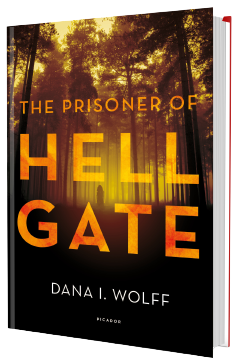
The Prisoner of Hell Gate
After seeing the pictures, I couldn’t get North Brother or Mary out of my head. What an amazing setting and context for a horror novel! I read everything I could about Typhoid Mary. Another story came to my attention, the story of the General Slocum, a large pleasure ship that burned to the water line in a tragic fire, killing hundreds—the largest peacetime maritime disaster in American history. It ran aground on North Brother Island. I thought about visiting the island, but it’s off limits as a protected wildlife sanctuary (and the fallen-down buildings are no doubt dangerous). Still, I had the pictures. I imagined a boatful of young adults smoking grass and taking a dare to visit the halls that Typhoid Mary once stalked. How could they not be haunted? I had to write this story!
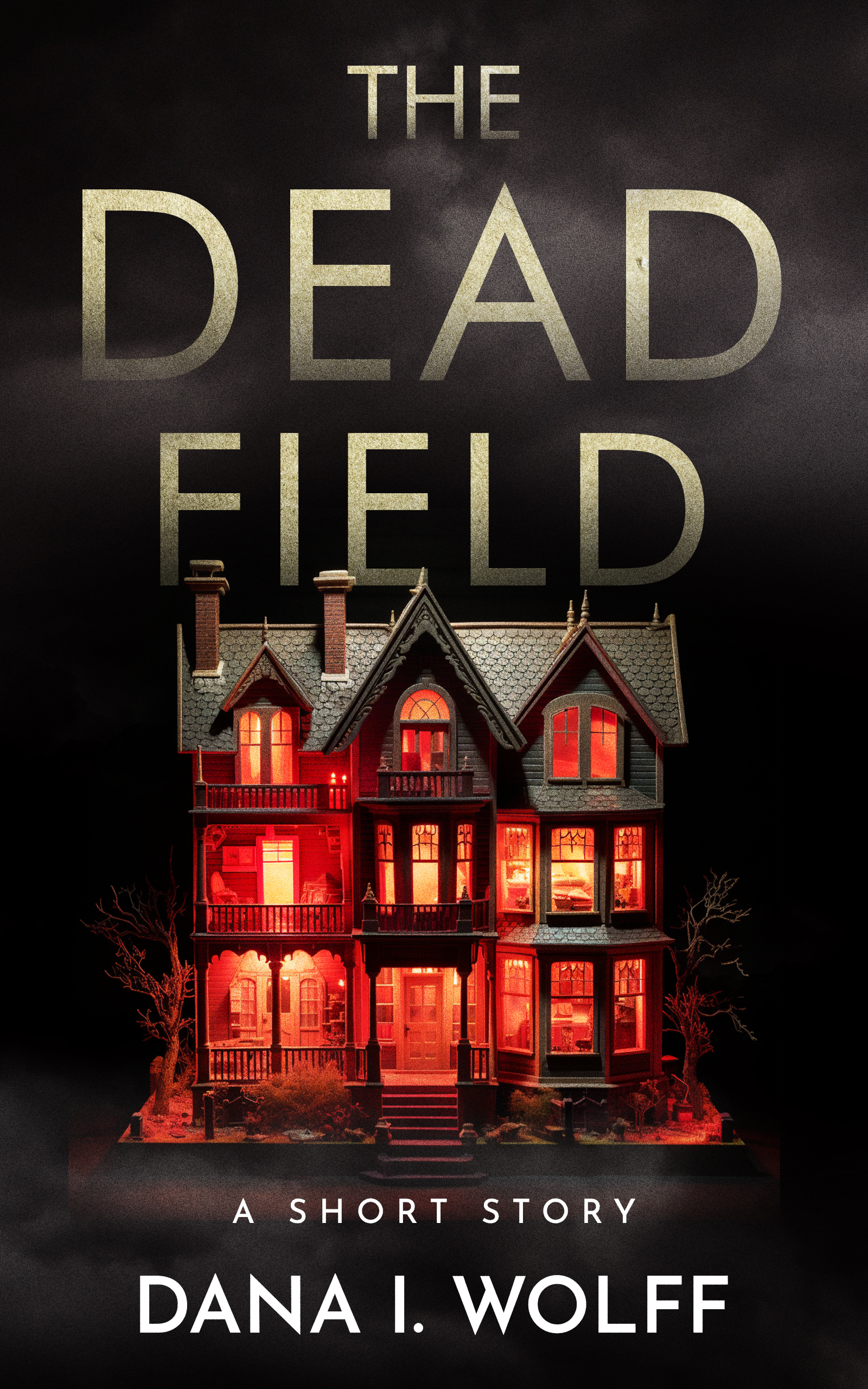
The Dead Field
I wrote this short horror story when a high-concept premise wormed its way into my head. Two words: haunted dollhouse.
